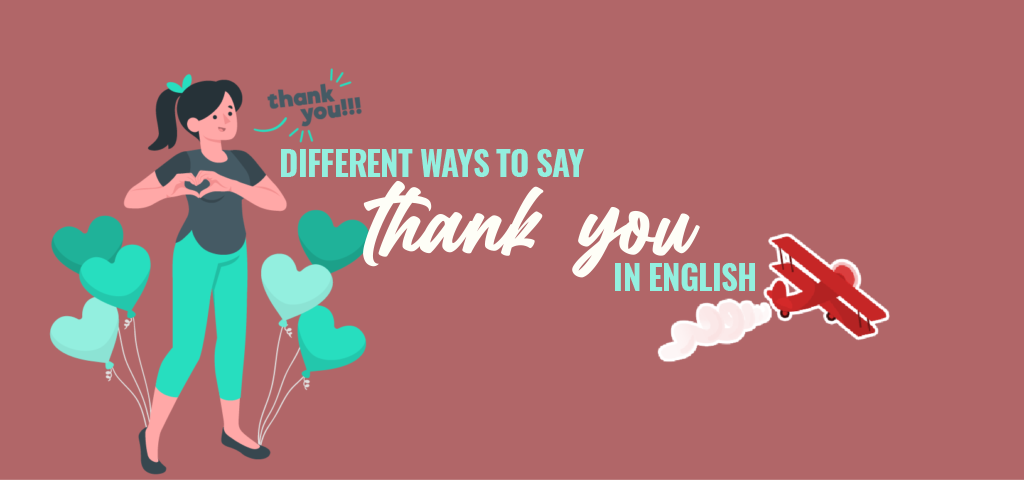Different ways to say “thank you” in English

How do you politely thank someone in English? This is a fairly frequent question. Actually, there are several ways to thank someone in English; The phrase ‘Thank you very much’ is not the only option. In this article, we’ll look at the different ways to say thank you in a variety of contexts , so that you can do it politely or reciprocate with your best friend in a more informal way.
ÍNDICE DE CONTENIDOS
The English are known to be very polite; Therefore, it is essential to know how to say thank you and use the appropriate formula for each situation . Think that someone is not only thanked with words; body language is equally important.
Different ways to express your gratitude
- Thank you.
Gracias.
- Thanks (informal).
Gracias (informal).
- Thanks a lot for looking after the children.
Muchas gracias por cuidar a los niños.
- Thanks very much for dinner. It was great!
Muchas gracias por la cena. ¡Fue grandioso!
- Thank you so much for helping me out today.
Muchas gracias por ayudarme hoy.
Formal expressions
‘Very grateful’, you have probably never heard this expression (although it sounds a lot like “muito obrigado” in Portuguese), but if one day you hear “thank you very much” or hear it somewhere, don’t be surprised. Plus, it’s so rare to hear it these days that many people would turn their heads to find out who said it.
Generally, it is a very polite expression rather used by the wealthy classes. If you want to make your “snob” feel free to use this expression.
Example:
- I was very grateful for the award.
Estaba muy agradecido por el premio.
- He was very flattered by the award.
Se sintió muy halagado por el premio.
In the world of work, it is important to thank not only your supervisor, but also your colleagues, suppliers, and even customers. It is important to show that you appreciate their help and contribution. Most of the following expressions can be used both spoken and written.
Example:
- We are much obliged to you for your patience during the recent difficulties.
Le estamos muy agradecidos por su paciencia durante las recientes dificultades..
- I’d like to thank everyone for coming along and supporting us today.
Me gustaría agradecer a todos por acompañarnos y apoyarnos hoy.
This expression is often used in speeches to thank this or that people. You may have heard it before in the Oscar-winning actors’ speeches. It is mainly used to talk to a group of people.
- Many thanks for your email.
Muchas gracias por su correo.
This expression of gratitude is often used in writing, in letters, or in emails. How you thank someone is directly related to why you are thanking that person. A simple thank you card with the words “thank you” is a nice touch that will be greatly appreciated. These are also gestures that allow you to express your gratitude.
Referred to friends, relatives, relatives, or acquaintances
- You’ve saved my life! Thanks again!
¡Me has salvado la vida! ¡Gracias de nuevo!
- Thanks for the advice. I owe you one.
Gracias por el consejo. Te debo una.
- Thanks for helping me out with this project. I owe you big time.
Gracias por ayudarme con este proyecto. Te debo mucho tiempo.
- I’ll never forget what you’ve done for us.
Nunca olvidaré lo que has hecho por nosotros.
- I greatly appreciate it.
Te lo agradezco mucho.
- Your generosity overwhelms me! You shouldn’t have bought this.
¡Tu generosidad me abruma! No deberías haber comprado esto.
- Words aren’t able to express my gratitude. You’re the best friend ever!
Las palabras no pueden expresar mi gratitud. ¡Eres el mejor amigo de todos!
Learn how to answer
Knowing how to thank someone is not enough; Knowing how to respond when someone thanks you is also very important.
Here are some useful expressions:
- You’re welcome.
De nada.
- Not at all.
Para nada.
- Was nothing.
No fue nada.
- The pleasure was mine.
El placer fue mío.
- Do not mention it.
No lo menciones.
Social customs
You will surely think of these “cheers” when you toast at a celebration, but it must be said that this word also expresses gratitude. This is something very common in the United Kingdom but not too common in the United States, in any case, it is a very well-known and understood expression in any English-speaking country.
Example:
- I just want to say hello to everyone for coming to the pub to celebrate my birthday with me.
Solo quiero saludar a todos por venir al pub a celebrar mi cumpleaños conmigo.
Thank you
When someone does something that you like and you are grateful for it, you can let them know by saying “I appreciate it.” In this case, “it” refers to what we did for you. It could be said that it is an expression widely used in the business world and has more sustained connotations. Use this expression to impress your boss!
- All your help when moving house was amazing, I really appreciate it.
Toda su ayuda cuando se mudó de casa fue increíble, se lo agradezco mucho.
- You don’t know how much I appreciate your help with the move.
No sabes cuánto aprecio tu ayuda con la mudanza.


